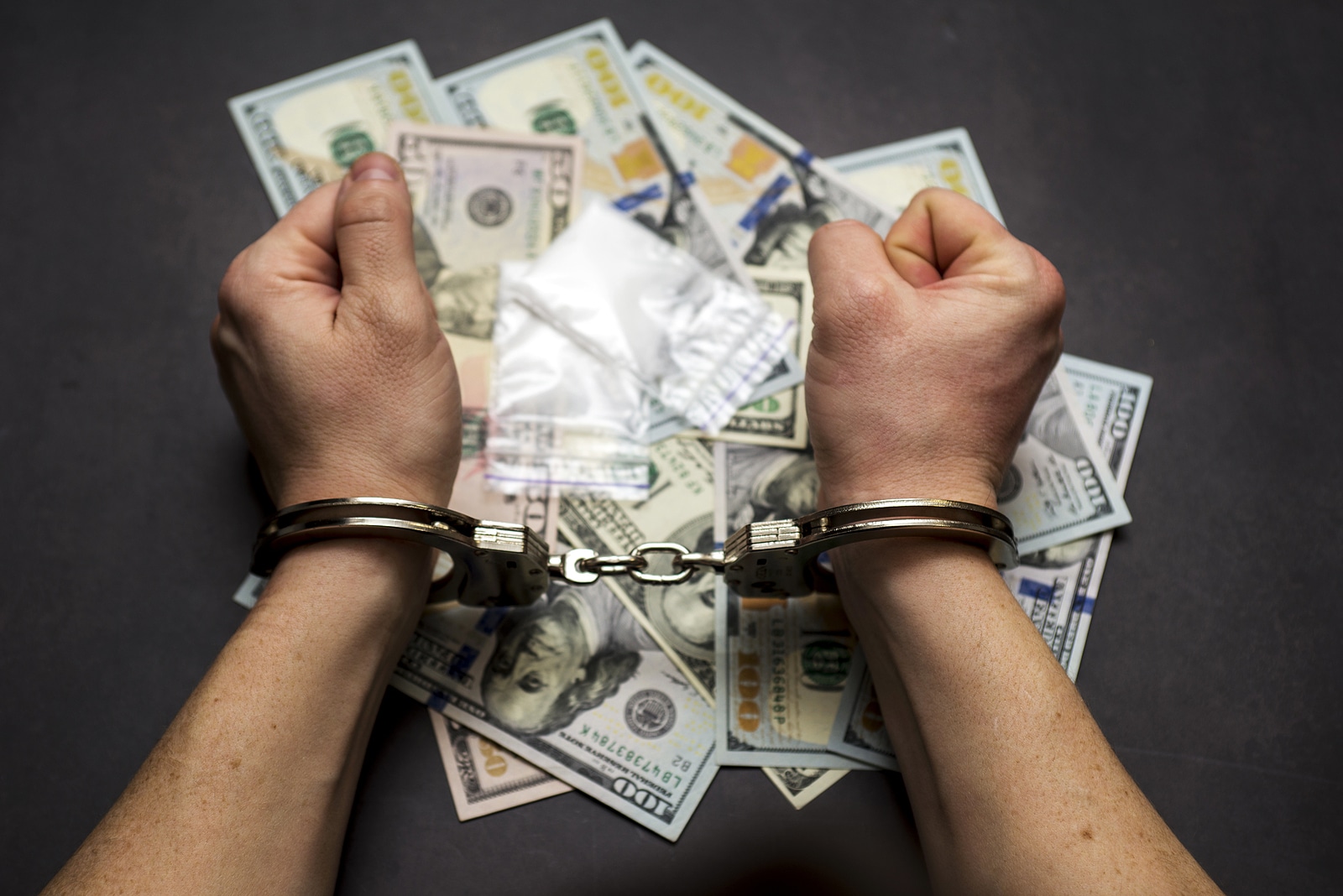The Rights of the Accused in Domestic Violence Cases
Domestic violence accusations can be emotionally charged, and society rightly demands justice for the victims. However, it is crucial to remember that every accused person deserves a fair and impartial trial, irrespective of the severity of the crime. Presuming innocence until proven guilty ensures that the accused are not unduly stigmatized or prejudiced before their case is thoroughly examined in a court of law.
The Presumption of Innocence
This principle establishes that every individual is innocent until proven guilty in a court of law. Regardless of the nature of the crime they are accused of, this presumption ensures that the accused is treated fairly, with respect for their rights and dignity. Regarding domestic violence cases, this principle holds immense significance, safeguarding the rights of those accused and emphasizing the importance of a fair trial.
The presumption of innocence is a powerful check against potential miscarriages of justice. It reminds us that accusations, even those as severe as domestic violence, do not automatically equate to guilt. Each case must be thoroughly investigated, evidence meticulously examined, and the accused allowed to present their side of the story. This process is not just a legal formality; it is the foundation of a just society that values the rights and dignity of every individual.
Additionally, upholding the presumption of innocence is a deterrent against hasty judgments and vigilante justice. It encourages a thoughtful and thorough examination of evidence, witnesses, and circumstances surrounding the alleged crime, fostering a legal environment where truth and justice prevail over prejudice and haste.
Innocence Until Proven Guilty
The presumption of innocence means that, at the outset of any legal proceedings, individuals are presumed innocent. It places the burden of proof squarely on the prosecution, requiring them to prove the guilt of the accused beyond a reasonable doubt. This principle ensures that no person is unfairly penalized or stigmatized merely based on an accusation.
Protection against Unjust Accusations and Arbitrary Prosecution
The presumption of innocence protects individuals from arbitrary arrest and prosecution. It seeks to reduce public humiliation and social ostracization based solely on accusations. The principle of innocent until proven guilty underscores the necessity of evidence and due process before condemning someone guilty. Law enforcement and legal authorities are compelled to gather substantial evidence before initiating legal proceedings, preventing the misuse of state power against individuals without proper cause. This principle protects innocent people from the consequences of false or erroneous allegations.
Protection Against Hasty Judgments
By requiring thorough evidence and a meticulous legal process, the presumption of innocence guards against hasty judgments and wrongful convictions. It prevents a rush to judgment, emphasizing the importance of a careful, systematic evaluation of the evidence before any conclusions are drawn. This protection is crucial in preventing miscarriages of justice and ensures that judgments are not based on hearsay or emotions but on the foundation of credible evidence and reasoned analysis.
The Burden of Proof
At the heart of the presumption of innocence lies the concept of the burden of proof. It places the responsibility squarely on the prosecution to prove the guilt of the accused beyond a reasonable doubt. This fundamental shift in burden ensures that the accused is not compelled to prove their innocence but requires the state to demonstrate their guilt with credible and admissible evidence. This balance is crucial in preventing wrongful convictions and upholding the integrity of the legal process.
Preventing Wrongful Convictions
By demanding rigorous proof before a conviction, the presumption of innocence is a potent safeguard against wrongful convictions. It compels investigators, lawyers, and judges to critically assess the evidence, reducing the likelihood of errors and ensuring that justice is served. Wrongful convictions destroy the lives of the innocent and erode public trust in the legal system.
Fair Treatment
Accused individuals have the right to be treated fairly and respectfully throughout the legal process. They have the right to be treated considerately by law enforcement officers, attorneys, judges, and court staff. Courteous and professional conduct fosters an environment where individuals feel heard, acknowledged, and valued, upholding their dignity throughout the legal proceedings. Ensuring fair treatment for accused individuals by safeguarding their rights, combating discrimination, and promoting respectful and unbiased legal proceedings, we reinforce the principles of justice, equality, and human dignity.
Upholding Human Dignity
Innocent until proven guilty emphasizes the value of human life and ensures everyone is treated with respect and fairness, regardless of their charges. Upholding the presumption of innocence promotes a society that values human rights, compassion, and empathy, fostering an environment where justice prevails over prejudice. This principle underscores the belief in the potential for rehabilitation and redemption, encouraging a society that values compassion and understanding.
Maintaining Public Trust
A legal system rooted in the presumption of innocence fosters public trust. When people believe that the accused are treated fairly, it enhances confidence in the judicial process. This trust is essential for the smooth functioning of any democratic society, promoting social stability and cohesion.
The Role of Legal Professionals
Legal professionals, particularly defense attorneys, play a pivotal role in upholding the presumption of innocence. They meticulously scrutinize evidence, challenge witness testimonies, and question the validity of legal procedures. By zealously advocating for their clients, defense attorneys act as guardians of this principle, ensuring justice prevails and the accused receives a fair trial.
Ensuring a Fair Trial
A fair trial, with the presumption of innocence at its core, ensures that the accused has access to legal representation, can challenge the evidence presented against them, and is judged solely based on the merits of the case. It also protects against false accusations and wrongful prosecution.
Presumption of Innocence
Central to a fair trial is the presumption of innocence. This foundational principle protects the accused from unjust accusations and wrongful convictions, fostering an environment where justice prevails over prejudice.
Legal Representation
Every accused person has the right to competent legal representation. A skilled defense attorney ensures the accused understands their rights, navigates complex legal procedures, challenges evidence, and presents a strong defense. If the accused cannot afford an attorney, one is provided to guarantee equal access to justice.
Defense attorneys play a pivotal role in upholding the presumption of innocence. They diligently investigate the accusations, challenge the evidence, and protect the accused’s rights. By crafting a robust defense strategy, attorneys help counterbalance the prosecution’s case, emphasizing the need for compelling evidence to establish guilt beyond a reasonable doubt.
Fair and Unbiased Jury Selection
A fair and unbiased jury selection process is crucial in cases involving a jury. This helps prevent prejudice, ensuring that the accused is judged by their peers without preconceived notions. By eliminating bias, the accused is provided with a level playing field, allowing their case to be evaluated based on evidence, arguments, and legal principles rather than stereotypes or societal biases.
Impartial and Independent Judiciary
An impartial, independent, and unbiased judge is essential for a fair trial. Judges must approach each case objectively, free from personal biases or external pressures. Their role is to interpret the law, ensure due process, and guarantee that all parties receive a fair hearing. A judiciary that operates independently and impartially makes decisions based on the law and evidence, free from external interference while upholding public trust in the legal system.
Right to Confront Witnesses
The right to confront witnesses against the accused is crucial to a fair trial. This right, protected by the Sixth Amendment in the United States Constitution, allows the defense to cross-examine witnesses presented by the prosecution. This ensures that the evidence against them is credible, reliable, and subjected to scrutiny, preventing unreliable testimony from influencing the verdict. Cross-examination enables the defense to challenge the credibility of witnesses and probe the reliability of their testimony.
Protection Against Self-Incrimination
The accused has the right to remain silent to avoid self-incrimination. They cannot be compelled to testify against themselves, protecting them from coercion and ensuring that any statement made is voluntary and informed. This protection is essential in preventing coerced confessions or statements made under duress, ensuring that individuals are not forced to implicate themselves in a crime. By exercising this right, the accused retains control over their words, preventing involuntary admissions of guilt.
Thorough Investigation
Law enforcement agencies must conduct thorough and unbiased investigations. A comprehensive investigation begins with meticulous interviews of all relevant parties. This includes not only the victim and the accused but also witnesses, experts, and anyone else with pertinent information. Physical evidence, such as documents, photographs, and forensic samples, must be carefully documented and stored to maintain its integrity.
Digital evidence, including emails, text messages, and social media interactions, demands scrupulous handling. By gathering perspectives from various sources, law enforcement agencies ensure a well-rounded understanding of the case, uncovering crucial details that might otherwise be missed.
Admissible and Reliable Evidence
A fair trial necessitates the admission of relevant and reliable evidence. Rules of evidence ensure that only admissible evidence, free from hearsay or undue prejudice, is presented in court. Strict adherence to these rules guarantees that the jury or judge considers only credible information when rendering a verdict, preventing unfair prejudice from influencing the outcome. The prosecution and defense have the right to challenge the admissibility of evidence, ensuring that the information presented to the judge and jury is reliable and obtained legally.
Protection Against Double Jeopardy
Accused individuals are protected from being tried twice (double jeopardy) for the same offense. Once acquitted or convicted, they cannot be retried for the same crime, preventing harassment through multiple prosecutions for the same alleged offense. The principle of double jeopardy preserves the finality of judgments. Once a case has been decided, the legal system respects that decision, regardless of whether it resulted in an acquittal or conviction. This finality is essential for maintaining the integrity of the justice system, as constantly retrying individuals for the same offense would undermine public trust in the legal process.
Right to Appeal
A fair trial extends beyond the initial courtroom proceedings. The right to appeal allows individuals to challenge their conviction or sentence if errors in legal procedures or judgments are identified. This safeguard ensures that justice remains a continuous pursuit, providing an opportunity to rectify any miscarriages of justice and upholding the legal process’s integrity.
Open and Transparent Proceedings
Court proceedings are generally open to the public, ensuring transparency and accountability. Open trials discourage misconduct, protect the rights of the accused, and maintain public trust in the legal system. Open court proceedings act as windows through which the public can observe the legal system at work. The very presence of spectators in the courtroom serves as a deterrent against misconduct. Lawyers, judges, and witnesses are acutely aware of the scrutiny under which they operate. This awareness discourages unethical behavior, ensuring that all participants adhere to ethical standards and conduct themselves professionally.
Legal Help is Available
The presumption of innocence is not merely a legal principle but a moral imperative that underlines a commitment to justice and fairness. By safeguarding the rights of those accused of domestic violence through this fundamental principle, dedication to a society where every individual is treated with dignity, respect, and the presumption of innocence until proven otherwise in a court of law is affirmed.
Trust Carl Chapman, P.C. to protect your rights, uphold the presumption of innocence, and fight for your freedom. Contact us today at 470-206-2169 for a confidential consultation. Together, we’ll navigate the legal complexities and ensure you receive fair treatment and justice.

 470-206-2169
470-206-2169





